* Text fwd by Bruce Gagnon*
http://www.washingtonpost.com/wp-dyn/content/article/2009/04/04/AR2009040400171.html?hpid%3Dtopnews⊂=AR
Obama Arrives in Prague Amid Shield Protests
(See short video with Jan Tamas in Prague at http://space4peace.blogspot.com/ )
By Craig Whitlock
Washington Post Foreign Service
Saturday, April 4, 2009
PRAGUE, April 4 -- Like elsewhere in Europe, President Obama received the red-carpet treatment when he arrived in the Czech Republic on Saturday. But he was also greeted by crowds of demonstrators who have nearly succeeded in defeating a key component of the Pentagon's missile-defense shield and want Obama to bury the project for good.
Polls show that about 70 percent of Czechs oppose the shield, a futuristic project designed to intercept long-range missiles fired by Iran at Europe or the United States. Despite popular opinion, the Czech government signed a treaty with the Bush administration last July to host a radar tracking system, one of two legs of the shield that would be based in Eastern Europe.
In recent weeks, however, foes have won a series of battles that have nearly derailed the project here, a turn of events that has surprised even some activists.
Last month, the government was forced to postpone a legislative vote to ratify the treaty after opponents mustered enough support to block it A few days later, lawmakers voted to dissolve the government of Prime Minister Mirek Topolanek, a leading champion of the shield.
Topolanek remains in power for the moment but is a lame duck until elections can be held, likely in October. Analysts said a new government, mindful of public skepticism of the missile shield, will probably let the unratified treaty lay dormant, if not kill it outright.
"As far as the Czechs are concerned right now, it's on the shelf," said Oldrich Cerny, a former Czech national security adviser and foreign intelligence chief. "It didn't stand a chance of being ratified by the Parliament in its current shape."
Obama has said he has doubts about whether the interceptors will work and has questioned whether the project is affordable, but has not pulled the plug on the project. That has prompted opponents to plan large-scale demonstrations Sunday -- when Obama is scheduled to make an open-to-the-public speech at Prague Castle.
"The truth is, the treaties are not dead. They can be brought back to life," said Jan Tamas, a leader of the Non-Violent Movement, a coalition that has lobbied against the shield "That's the strange thing about it. We have our own politicians who have already gone completely against the will of the people, so who knows what they'll try to do."
Jan Glivicka, a spokeswoman for another group called the No Bases Initiative, said many Czechs think highly of Obama and have been encouraged that he has expressed doubts about the missile shield. But she said she doubted Obama would go so far as to bury it.
The only way to do that -- or at least to ensure that the Czechs play no role in the project -- is to pressure Czech lawmakers to kill the treaty, she said.
"We really want to win this battle at home in the Czech Republic," Glivicka said. "It's not just a question of foreign policy. It's a battle for democracy. We can vote down this relic of the Bush administration on our own."
The Pentagon has said it is crucial to base the shield in Eastern Europe so it can intercept Iranian missiles aimed at Europe or the United States.
Last Augusts, after lengthy negotiations, Poland agreed to host 10 interceptor missiles in exchange for U.S. pledges to help upgrade the Polish military. The Czech leg of the system would be a tracking radar planted on top of a rocky hill in the Brdy military district, about 60 miles southwest of Prague.
After decades of occupation by Soviet forces, however, many Czechs are hostile to the idea of a foreign military presence on their territory. Others doubt whether the shield would work and wonder why they should insert themselves into a conflict between the United States and Iran.
"It's a scheme that doesn't work, against a threat that doesn't exist, in a country that doesn't want it," Glivicka said.
Many Czechs are also worried about alienating Russia, which has complained that the shield is a Pentagon stalking horse aimed at Moscow. U.S. military officials say the anti-missile system is purely defensive and is too small to withstand the Russian nuclear arsenal. But so far, they have failed to persuade the Russians to drop their objections.
In November, on the day after Obama won the U.S. presidential election, Russian Prime Minister Dmitry Medvedev threatened to retaliate against the shield by moving short-range missiles into Kaliningrad, a sliver of Russian territory on the Baltic Coast, adjoining Poland. Russian generals have also talked tough about taking aim at Poland and the Czech Republic if they continued to cooperate with Washington.
Since then, the Russians have toned down their threats, partly in response to the Obama administration's professed lack of enthusiasm for the shield. But Russia also seems to be betting that the Czechs will pull out of the project.
Dmitri Rogozin, Russia's ambassador to NATO, said the collapse of the pro-shield Czech government and the decision to hold fresh elections later this year represented "a practically insurmountable problem" for the project. "Without the radar, the U.S. missiles in Poland would be blind," he added.
Tomas Weiss, a security analyst at the Europeum Institute for European Policy in Prague, said many Czechs worry that the shield could make them a potential target. But he said public perceptions could shift if Iran becomes a nuclear power, or tests long-range missiles that could reach Europe. If that happens, he said, the Czech government could quickly dust off the treaty and win legislative approval.
"All of it can be sold to the public if the situation changes," he said. "I don't really think it's dead completely. I just think it's on hold."
Global Network Against Weapons & Nuclear Power in Space
PO Box 652
Brunswick, ME 04011
(207) 443-9502
http://www.space4peace.org
globalnet@mindspring.com
http://space4peace.blogspot.com (Blog)
Sunday, April 5, 2009
Subscribe to:
Post Comments (Atom)

![[URGENT PLEA: In Update] EMERGENCY in GANGJEONG Since AUG. 24, 2011](http://2.bp.blogspot.com/-3iz8k-USXVY/TlmRYhhIYtI/AAAAAAAAL2c/9dbF85ZIkIs/s227/jejusit.jpg)
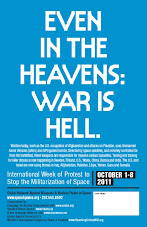
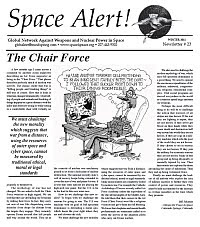

![[Solidarity from Japan for the Jeju] 253 individuals and 16 groups/organizations](http://2.bp.blogspot.com/_gnM5QlRx-4c/TR_YeNVE1yI/AAAAAAAAHWQ/ARyf6oQN0S0/S227/jeju_12_10j.jpg)
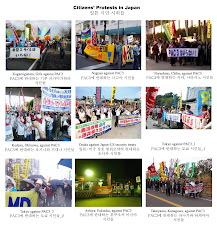
![[Translation] Korean organizations' statement: Immediately cancel the joint ROK-US drill Nov 26](http://2.bp.blogspot.com/_gnM5QlRx-4c/TPOE8VKXHFI/AAAAAAAAGlM/8lryt-8sFjc/S227/1.jpg)
![HOT! [Hankyoreh Hani TV] Beneath the Surface: the investigation into the sinking of the Cheonan](http://4.bp.blogspot.com/_gnM5QlRx-4c/TOI83qht8aI/AAAAAAAAGXU/22SW6Q5ntV8/S227/HaniTV%2BCheonan.gif)

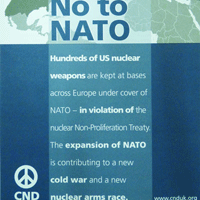

![[Translation]Statement against illegal inspection and unjust lay-off by the Kunsan USAFK!(Nov_2010)](http://4.bp.blogspot.com/_gnM5QlRx-4c/TOPLsVkZMqI/AAAAAAAAGZs/3YnnckIyAaY/S227/gunsan%2Bprotest.gif)
![[Translation] Korean organizations' statement against dispatching special force to the UAE on Nov.](http://4.bp.blogspot.com/_gnM5QlRx-4c/TOP95zHXlCI/AAAAAAAAGak/E0Ug1XtUFfM/S227/antiwarpeace.jpg)
![[Translation] Stop, Joining MD!: South Korean activists' statement and writing on Oct. 25, 2010](http://3.bp.blogspot.com/_gnM5QlRx-4c/TOP7Es4_2sI/AAAAAAAAGac/eWVMPD-U4p0/S227/StopMD.jpg)
![[In Update] People First, NO G-20 (Nov. 6 to 12, Korea)](http://2.bp.blogspot.com/_gnM5QlRx-4c/TJd53XBzHlI/AAAAAAAAFQo/ldO9JPE3eqo/S227/left21_G20.jpg)
![[International Petition] Stop US helipad plan in Okinawa to save great nature](http://4.bp.blogspot.com/_gnM5QlRx-4c/TKC2AHRNzBI/AAAAAAAAFUo/yGWXODTw_uM/S227/yanbaru_w.jpg)

![[Global Network] against the first launch of Quasi-Zenith Satellite, Japan, on Sept. 11, 2010](http://4.bp.blogspot.com/_gnM5QlRx-4c/TIowa1boy4I/AAAAAAAAFDI/82rAi98uq-c/S227/Qzss-45-0_09.jpg)

![[In update] Some collections on the Koreans’ protests against the sanction & war on Iran](http://4.bp.blogspot.com/_gnM5QlRx-4c/TJMvke6t8zI/AAAAAAAAFO4/tamQ8LUnOOA/S227/No+Sanction+on+Iran.jpg)
![[Three International Petitions] to End the Korean war and peace treaty(or peace resolution)](http://1.bp.blogspot.com/_gnM5QlRx-4c/THef7bzWxYI/AAAAAAAAE44/wwdzSDfYhdw/S227/border.jpg)
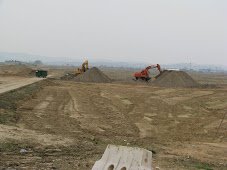


![[Collection of Documents] No Base Learning and Solidarity Program_Korea(June 14 to 20, 2010)](http://1.bp.blogspot.com/_gnM5QlRx-4c/TCTvVuN8NeI/AAAAAAAAEek/8vBJVaHdk10/S227/No-Base-banner.jpg)
![Site Fwd:[John Hines] A U.S. Debate coach’s research trip on the Issues of Korea](http://3.bp.blogspot.com/_gnM5QlRx-4c/TINCO36mzzI/AAAAAAAAE_w/Rds12NcBOXM/S227/Jeju-Peace-Tour.jpg)


![[News Update] Struggle Against the Jeju Naval Base since Jan. 18, 2010](http://1.bp.blogspot.com/_gnM5QlRx-4c/S1vvWaP25uI/AAAAAAAACkg/QvpW1tgOlKM/S226/scrum1.jpg)


![[Urgent] Please spread the Letter!: There was no Explosion! There was no Torpedo! (May 26, 2010)](http://4.bp.blogspot.com/_gnM5QlRx-4c/S_9JmsKEU7I/AAAAAAAAEP8/sAWjSPqxzUI/S227/grounded.jpg)
![Text Fwd: [Stephen Gowans]The sinking of the Cheonan: Another Gulf of Tonkin incident](http://1.bp.blogspot.com/_gnM5QlRx-4c/TAL_FtYKQ-I/AAAAAAAAERE/NEEMijiEcRM/S227/lee-myung-bak.jpg)
![[Japan Focus]Politics in Command: The "International" Investigation into the Sinking of the Cheonan](http://1.bp.blogspot.com/_gnM5QlRx-4c/TBMJ2syJzyI/AAAAAAAAEZU/uTYZccU5vyk/S227/wen_jiabao_and_lee_myungbak.png)
![[Japan Focus] Who Sank the SK Warship Cheonan? A New Stage in the US-Korean War and US-China](http://2.bp.blogspot.com/_gnM5QlRx-4c/S_iQ2vE5ZpI/AAAAAAAAEOU/Oo1SPcAe8FE/S227/buoy_map.gif)
![[Updated on 12/13/10] [Translation Project] Overseas Proofs on the Damages by the Military Bases](http://4.bp.blogspot.com/_gnM5QlRx-4c/S-qSj59gPLI/AAAAAAAAEGM/mwjlFtPE-jo/S227/missile.jpg)
![[International Petition] Close the Bases in Okinawa](http://3.bp.blogspot.com/_gnM5QlRx-4c/S8-z3DYNwNI/AAAAAAAADo4/OswTSchK09M/S227/2.jpg)

![[In Update]Blog Collection: No Korean Troops in Afghanistan](http://4.bp.blogspot.com/_gnM5QlRx-4c/SwnlLD9IewI/AAAAAAAAB9E/oUPssnpNidA/S226/No-Troops-to--Afghanistan.jpg)
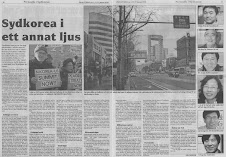

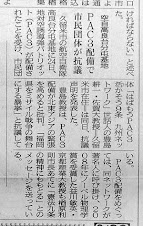

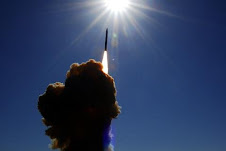


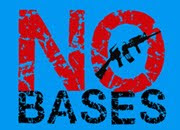
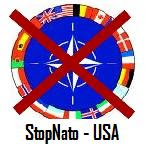


No comments:
Post a Comment